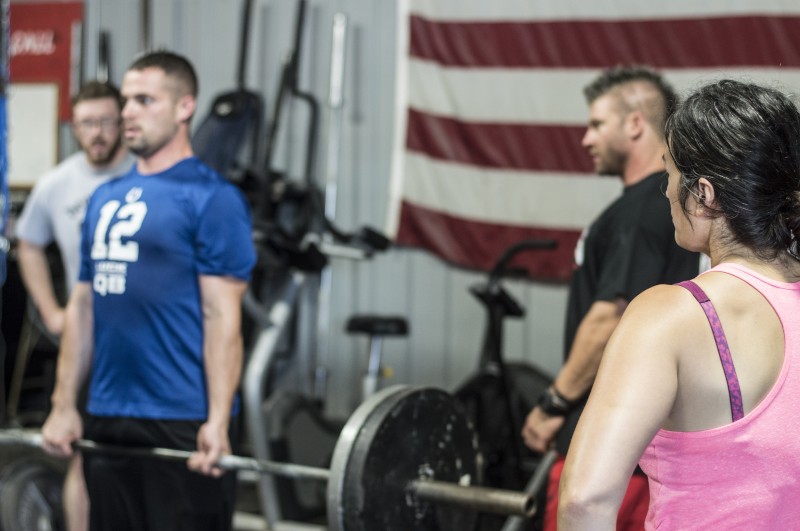
With each passing year in this industry, the more I appreciate how unique personal training is as a profession. It is a challenge to be both personal and professional, and then tailor the experience for an endless variety of individuals.
It occupies that intersection of applied science, psychology, and the balance between professional and personal. Personal Training does not have defined boundaries; trainers can create a career out of an endless variety of niches. There also are no constraints on where, when, or how you can “train” clients. So long as you follow principles of biology in your training, your methods will deliver results.
Personal training is a field that allows for creativity in how you do things with exercise, but at its core, it is still working with people. People have to like you if you want training to be your profession.
Getting People to Like You
Perhaps that sounds manipulative, but it is a sincere objective. Getting people to like you is the foundation of personal training.
If I were to be reductionist, I could just say, “be a good person, and a likable person.”
And that would be true, but it would not make for much of an article by itself.
The impetus for this article came from a good discussion with a friend of mine. He is new to training, and was asking various questions on interacting with people and how to create an enjoyable session experience. While I've at times been dismissive of “lists” that lay the “rules” of something, I realized through talking with him that they were definite points that could be listed as being crucial for personal training.
RELATED: How To Price Personal Training
This list is not a “science and evidence” list. That would be too easy, to say that someone needs to know anatomy and kinesiology.
Rather, this is a list of the principles that create the “personal” aspect of personal training, while still keeping it professional.
Over the years I have seen some seemingly very bad trainers have very consistent clients. And I know the role that psychology and interaction have. The personal ultimately trumps the technical in training.
Now, my advice would be to excel at both, not just one. But if I had to create a list to guide you on the just the personal side, the following would be it.
The 10 Principles
1. Be a consistent listener, not a persistent talker.
Actively listen to people. Make eye contact, acknowledge their words, and pay attention to body language and tone of voice. Be sincere in this at all times. If you really enjoy working with people, demonstrate it by giving them your undivided attention.
2. Do not be disinterested.
If you look bored, people will notice it. Your clients will, members will, other trainers will. Bored trainers are broke trainers. This does not mean to hardcore stare at your client nonstop, but you have to be engaged, make eye contact, and have genuine interest in the person in front of you.
3. Let your clients talk about themselves.
Your client is not there to hear about you; they are there to work on themselves. Aside from being an active listener, make it a goal to have your clients share as much as possible with you. Be encouraging if they open up in any way, and make note of key details (jobs, friends, family, kids, pets, etc).
4. Let your clients get personal, and THEN get personal with them.
Don’t get overly personal unless they do first. Once they do, it's tit-for-tat. There are some people that will always be cordial with you, but overall most people will treat you like a therapist and/or a very objective friend. Eventually, everyone ends up treating their trainer like a confidant if they work with them long enough. Develop a professional friendship and learn to maintain the boundaries of the relationship.
5. Do not ever let them see you upset.
No one hired you to hear you talk about your breakup, your sick dog, or your ill relative. This is not to be calloused, but rather pragmatic; your clients do not all need to know that you’re in the middle of a breakdown because you had a fight with your girlfriend/boyfriend and could barely show up to train them. Sharing with a client you are exceptionally close with is fine, but as a general guideline, keep your personal life private. Trainers that are always calm and collected are seen as reliable by their clients. Trainers that bring drama to their clients eventually end up with no clients.
6. When in doubt, refer out.
You are not meant to diagnose pain, illnesses, or prescribe treatment. If someone is presenting chronic symptoms beyond general muscle soreness and stiffness, direct them towards the appropriate practitioner. If someone is injured and wants to know what they should do, send them to a specialist. Do not turn yourself into a pseudo-doctor. Too often trainers put themselves in a “guru” position because they try to have the answers for all of their clients' problems.
7. Don't brag. Let your clients do that for you.
If you get results, your people are your advertisements. If you know what you are doing, and do it well, you should be able to have an informative conversation about health and training without needing to resort to sales-shark pitch tactics. People seek out trainers for guidance and hopefully someone that is understanding of their situation. If you seem full of yourself and excessively “bro”, you are going to struggle mightily in this field. Education and leadership beat excitement and lofty promises in the long run.
8. Look more professional than you think you need to.
Wear athletic slacks, wear a collared shirt, iron the shirt, match your outfits, and always have your hair done. Do not wear tank tops or the shorts you go play basketball in. The general public perception of personal trainers is that you are going to look like you just got done working out. Be better than this. And don’t ever have beat-up looking shoes either. Get your kicks on.
9. Have a sense of humor.
And I don't mean be a clown. Trainers too often can take themselves far too seriously. There tends to be a diametric swing between trainers that have a lazy attitude to the profession, versus ones who consider themselves to be dour exercise scientists or trainer spiritual gurus. Don't be any of them. Be a professional who helps people, makes them laugh a little, and laughs with them along the way.
10. Care about people.
Have a sense for empathy and a feel for sympathy. Value the person in front of you. Don't take people for granted. Do not work with people if you do not like people. Do take care of people, and trust that they will take care of you. Be someone your clients can trust.












I'm not a people person but I do get fired up when people get results and push themselves. I think my clients see this and appreciate it and I have a pretty good retention rate. I'm not so good at the small talk...